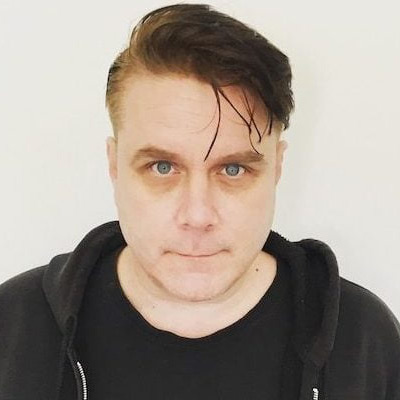An in-depth look at the final LP in the ‘Machine’ trilogy
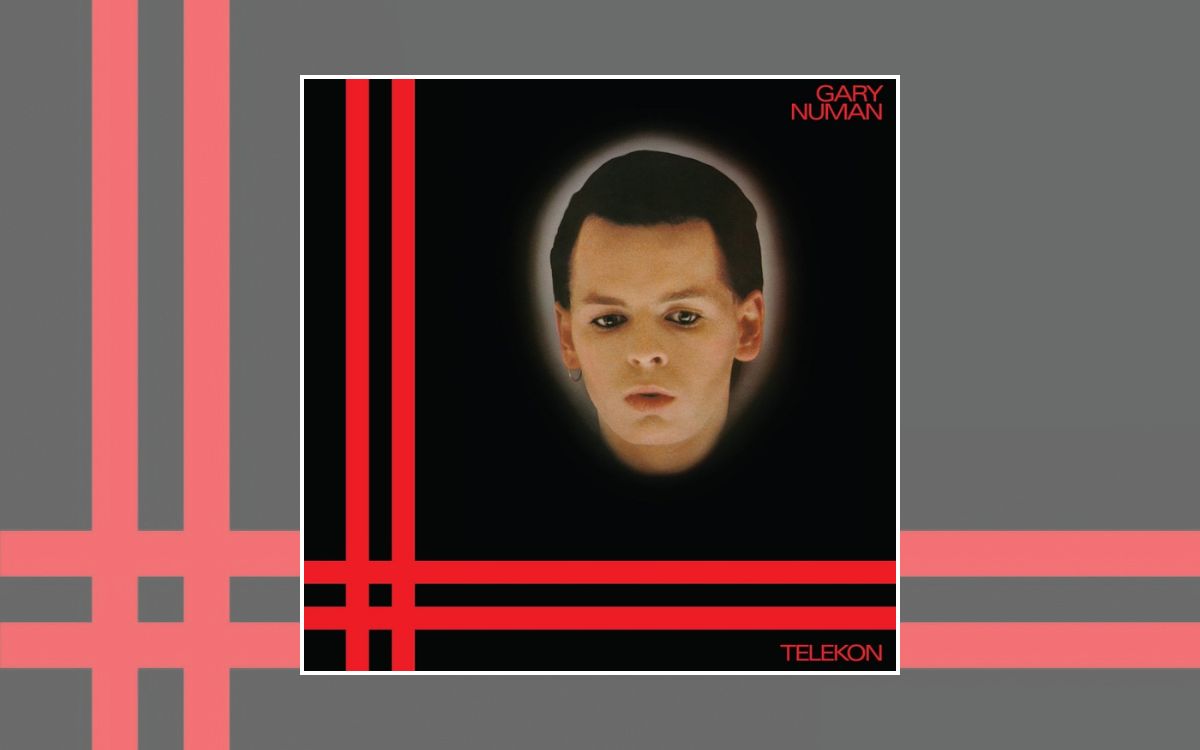
The final album in the ‘Machine’ trilogy, Gary Numan’s Telekon returned to guitars and added strings to the palette, soundtracking a record of bleak beauty…
It wasn’t in the plan for Gary Numan to be a popstar. It wasn’t in his vocabulary or on a to-do list. He was the least likely pin-up imaginable, and finding himself thrust into the flight path of mainstream success in 1979 saw him with not only a wealth of admirers, there were, too, many detractors and haters.
Telekon was effectively the last hurrah of Numan’s star phase. It acts as both an album designed to be as big as possible, yet not to pander to any ‘pop’ excess or give anyone ideas. If it’s at all possible, he was as big as any artist could achievably be, but he was not enjoying himself. Speaking to The Guardian in 2022, he revealed that, “There’s a glossy front-cover version where everything looks very glamorous, but the reality can be damaging and destructive. Making music stops being this thing you love and starts to become about units and strategies. The stress and pressure of it all was unbelievably difficult, particularly for someone like me.”
Explaining what Telekon, then in its demo stage, would be about to Jon Savage in Smash Hits in late 1979, Numan said it was about “a man who can finally harness the power of telekinesis, who can move things by thinking about it. He realises he can do it, and it just increases and snowballs. Because of his power he ends up destroying everything, including himself. That’s planned, but it’s not definite yet.”
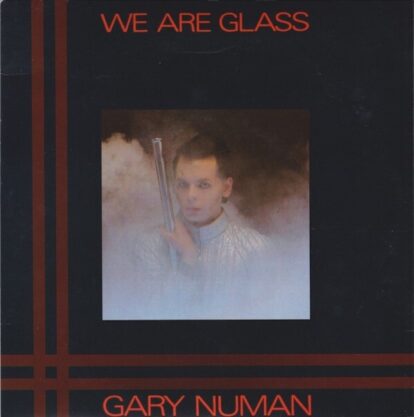
The Power Of Telekinesis
Initial sessions for the album happened at Rock City in Shepperton in early 1980 with additional recording done at Matrix Studios in London between legs of The Touring Principle, that had finished its UK leg in October 1979. It was at these sessions that Numan decided that Telekon would mark his farewell.
Working with pretty much the same band set-up as he’d had on The Pleasure Principle, with Paul Gardiner on bass, Cedric Sharpley on drums, Chris Payne on viola and synths, but now with added Rrussell Bell on guitar and Billy Currie’s replacement Denis Haines, who came on board during the last leg of the UK tour.
He and this line-up then resumed the tour, going across the States and Canada in February and March, and then Europe, before spending May traipsing across Japan, New Zealand and Australia. Due to the nature of his one-album-a-year contract with Beggars, Telekon was in the can a good eight months before it was eventually released ahead of Teletour, which began in September a day before the album’s release.
It was quite a punishing schedule for a self-confessed non-entertainer, detailing to Record Collector that: “I knew that I wasn’t particularly good on stage, I wasn’t comfortable with the way I performed. It was overly stylised for me, but I didn’t know what to do. I couldn’t dance for love nor money, so I tried to just look enigmatic. Try doing that for two hours! It just wasn’t really my thing.”
Pushed To The Edge
Expanding this discomfort to The Guardian a few years later, Numan revealed that, “I felt like I was being pushed towards the edge of a cliff, and I didn’t want to fall off.” He then announced a ‘farewell tour’ of a date at Wembley Arena, which was expanded to three, such was the demand. His ‘retirement’ ended up being short-lived, and he returned to those duties a couple of years later, but for the moment touring was no longer fun, and the plan was to get into video and film work. Whatever that meant.
Gary Numan was not what anyone would consider a pin-up, but by being the first to bring synth-pop into the Top 10, it was an accident that he become an avatar of futurism and its poster boy. While The Human League and OMD were ploughing away in a similar territory vaguely aware of each other, Gary was the first one to take the sound to the top of the charts. He stole a march on the New Romantics, faced the wrath of the Musicians’ Union, found himself taking calls from kids on Swap Shop and was generally a whipping boy for something happening without their permission.
Yet it was part of a plan, Numan telling Melody Maker that, “No matter how many new bands came up, I saw that every one had a singer or a guitarist the fans latched on to, but nobody behaved like a star. They were all shouting about their attitudes and they were all saying how they didn’t like this and that, but whatever band there was, the fans were desperate for just one person to get hold of. But nobody wanted to act the part.”
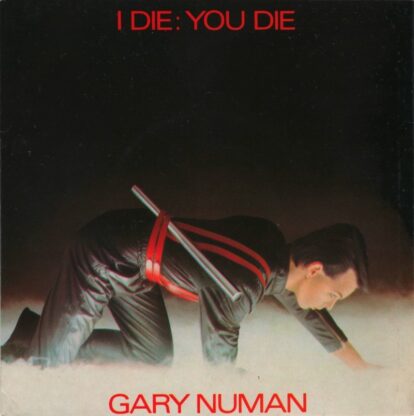
Out Of Control
Numan was up for it. He wanted to be a star. He wanted to become a figurehead, as opposed to the ‘we’re just like you’ approach of the New Wave/post-punkers. Yet further on speaking to Melody Maker at the time of Telekon’s release, it felt like things had backfired, and Numan’s chart success made him seem like a man on the edge, “I’m really frightened of what I do, what I say, how I deal with people now. Is it the fame, the money, being a star? Sometimes, I feel my whole personality is out of control.”
This new level of fame had its advantages, where he could add mansions and cars to his shopping list, but the alienated futurist mask was now eating into his face, and proving suffocating, making him develop a thicker skin. Yet the skin wasn’t yet thick enough for him to ignore the haters.
The plan was to become rich and famous, to be a star and make as much money as possible so he could have a level of control over his success, often ploughing that money back into his spectacular stage show. However he was beginning to feel under attack from the critics and the absurd demands that come with a level of fame brought from becoming a chart-topper. And he was also tiring of it.
It was becoming less fun for someone willing to be shameless enough to crave success only to be derided. It’s a human trait to acknowledge that, despite the benefits of adulation and fame, if something is becoming an ordeal, then why should he, or indeed anyone else, feel obliged to keep going through it.
Paranoid Android
Although Telekon had been trailed by two singles, We Are Glass and I Die: You Die, neither were on the vinyl edition of the album, relegated as extra tracks on the cassette instead. The sole single from the album was This Wreckage, which Numan would later declare as “a bloody stupid choice” as a single.
So then, Telekon feels a bit like a modern Ziggy Stardust retiring, telling his fans that he’s done. It’s easy to forget that at the time of Telekon’s release, Numan was a mere 22 years old, rather than someone who’d been around the block several times.
The dystopia that Numan had essayed on previous albums was now used as a prism for his own anxieties and relationship to fame, explaining to Record Collector that “I really was getting paranoid. Your songwriting becomes a reaction to these extreme experiences that you’re going through. And Telekon was a reaction, as a songwriter, to the fact that I’d become famous and all the weirdness that comes with that.”
Telekon was one long letter of farewell. When asked by Record Mirror if the track Remember I Was Vapour was a way of saying goodbye, Numan concurred, “Yes, so is This Wreckage, so is Please Push No More and The Joy Circuit. The whole album’s got that little hint of goodbye in it. In This Wreckage, the Japanese writing says ‘I leave you’.”
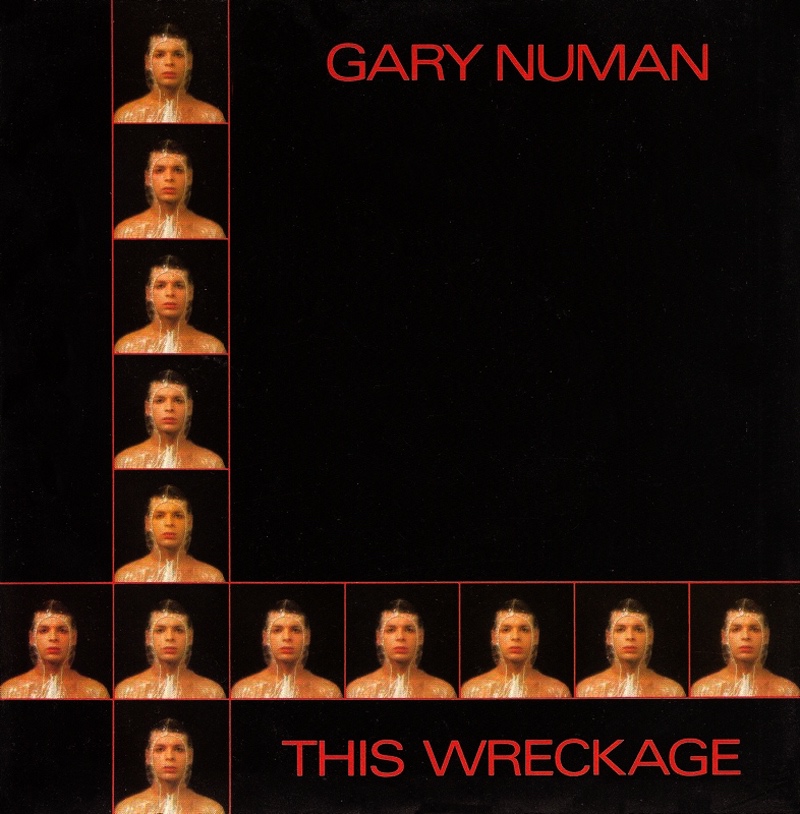
The Wreckage
Numan was drilling down on his farewell plans, emphasising, “I don’t care if I wasn’t famous this time next year or even this time next month. I wouldn’t care. There’s other things I want to do anyway. As long as I’ve got the money. With Telekon, in my own way I was saying very loudly that this is not what I expected and I don’t like it. I’m off!”
With the level of hostility he was facing, it was understandable, with Numan telling Record Collector: “The reviews were evil. The press were pretty nasty about it all the time, so that was upsetting. I’d come back from those early tours hundreds and thousands of pounds worse off than when I went out. You end up thinking, ‘Why am I doing this?’”
While Numan was effectively sticking a knife into his career, Telekon entered the UK Album Chart at No.1 in September 1980, although was off the list after 11 weeks, even with the woo of a free 7″ single with Remember I Was Vapour and a cover of On Broadway recorded live at Hammersmith the previous year. Among the kinder reviews were in Smash Hits, suggesting that “no one will be disappointed but there won’t be many new fans either”, and Rolling Stone’s three-starrer: “Scarcely out of his adolescent years, Gary Numan is already, in terms of attitude, the Samuel Beckett of British New Wave. On Telekon, however, his despondent sentiments are attached to the most wistfully beautiful music he’s yet created.”
Ultimately, while Telekon was one long, bleak and somewhat premature cheerio to fame, touring and chart-topping, time has shown that it wouldn’t be for long. Gary Numan came to terms with his success, outlived his detractors, kept his fans and eventually took his place among the innovators.
The Videos
We Are Glass
Lots of lasers, claps and slow-mo glass smashing as Gary clutches a guitar throughout. The symbolism of the guitar suggests that he’s embraced the instrument again having ditched it for the previous album. He doesn’t actually appear to play during the clip, but mooches about with it ready to be strummed at any moment.
I Die: You Die
Having made his name with a song about cars, we find Gary cruising in his latest acquisition, cutting away to him singing into a studio microphone, being perplexed by a payphone and walking down corridors showing off his new hair. The I Die: You Die single would make No.6 in the UK and No.16 in Ireland.
This Wreckage
Footage from the live show, with Numan in his full Telekon regalia and leather playsuit. Understandably after the expense that it was, a separate promo video seemed a bit superfluous. Showing Numan at the height of his fame, with superimposed grainy imagery, it only goes to show why, at the time, his live show was so envied.
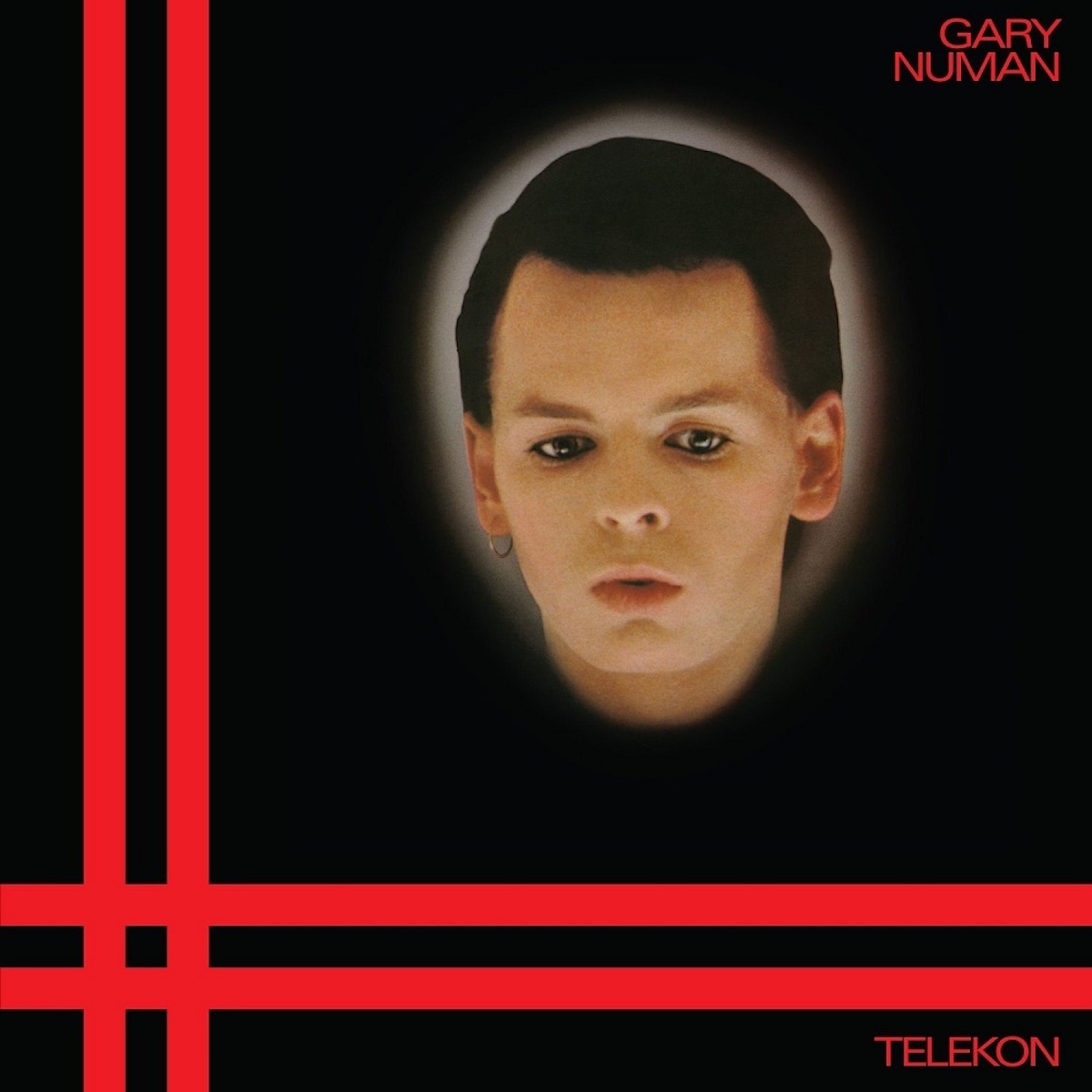
The Tracks
This Wreckage
Numan’s interest in Eastern culture saw him find himself a Japanese girlfriend who helped spell out the characters that translated as ‘I leave you’. A code for the fans even before the official announcement. A Top 20 hit in late 1980.
The Aircrash Bureau
Numan revealed to Steve Malins that this was, “A supernatural horror story about a pilot who was killed during the D-Day invasion of World War II. He comes back to warn people before they fly if their aeroplane is about to have an accident.”
Telekon
Essentially a cybernetic Aladdin Sane, updated to relate to Numan’s more space-age, android symbolism. Much of the album is about Numan’s disquiet at his fame and its demands.
Remind Me To Smile
Again, the suffocation of a fame that’s not quite what he expected set to a big pop chorus. Remind Me To Smile would have been a better – jollier isn’t quite the word – first single off the album.
Sleep By Windows
The genuinely weird by-product of pop stardom, where fans camp outside your house, but done Numan-ly. He’s effectively saying ‘f**k off’ to the more demanding end of his fanbase.
We Are Glass (Cassette Only)
Numan told Record Collector that We Are Glass was about “how fragile the whole fame thing is, how easily it can be destroyed, shattered and taken away from you. You’re easily broken and all that shit”. It reached No.5 in May 1980.
I’m An Agent
A song which came to Numan when he woke up with the lines “We are clean/ Don’t ask/ I’m an agent” in his head, and called a friend to relay it to them – as he didn’t have a tape recorder – in case he forgot the words.
I Dream Of Wires
Inspired by Philip K. Dick’s Do Androids Dream Of Electric Sheep?, as Gary wrote in the Telekon reissue’s sleevenotes: “The song outlines the thoughts of the last electrician on Earth, who is looking back nostalgically at better days when he was known as ‘The Sparkle’.”
Remember I Was Vapour
Previewed on the late 1979 tour, Remember I Was Vapour was, as Gary explained in the Telekon reissue notes, “written specifically for the fans, reminding them that I am human, and that all the things that hurt them, hurt me”.
Please Push No More
Another plea, pre-emptively imagining “quitting touring, but it’s written as though the final moment has just happened. I was trying to imagine how it would feel after the moment I’d played my last song.”
The Joy Circuit
Written specifically for the concert, the blend of minimalist piano and violin working best in the context of the light show. A somewhat downer of an LP closer, the last words – on the original vinyl at least – being “But all I find is a reason to die.”
I Die: You Die (Cassette Only)
Quite rightly up to his neck with crap from the press taking shots at him, Numan went on the attack, telling Record Collector: “I Die: You Die was my reaction to the press, which may have seemed childish, but that’s what I felt.”
Telekon 45th Anniversary UK Tour 2025
Tuesday 11 November – Glasgow O2 Academy
Wednesday 12 November – Newcastle O2 City Hall
Friday 14 November – Leeds O2 Academy
Saturday 15 November – Birmingham O2 Academy
Sunday 16 November – Bristol Beacon
Tuesday 18 November – Cardiff University Great Hall
Wednesday 19 November – Bournemouth O2 Academy
Friday 21 November – London Eventim Apollo
Saturday 22 November – Brighton Centre
Sunday 23 November – Southend Cliffs Pavilion
Tuesday 25 November – Nottingham Rock City
Wednesday 26 November – Cambridge Corn Exchange
Thursday 27 November – Norwich The Nick Rayns LCR, UEA
Saturday 29 November – Manchester O2 Apollo
Sunday 30 November – Liverpool O2 Academy
Tickets available here and here.
Read More: Top 40 synth-pop songs
Classic Pop may earn commission from the links on this page, but we only feature products we think you will enjoy.

